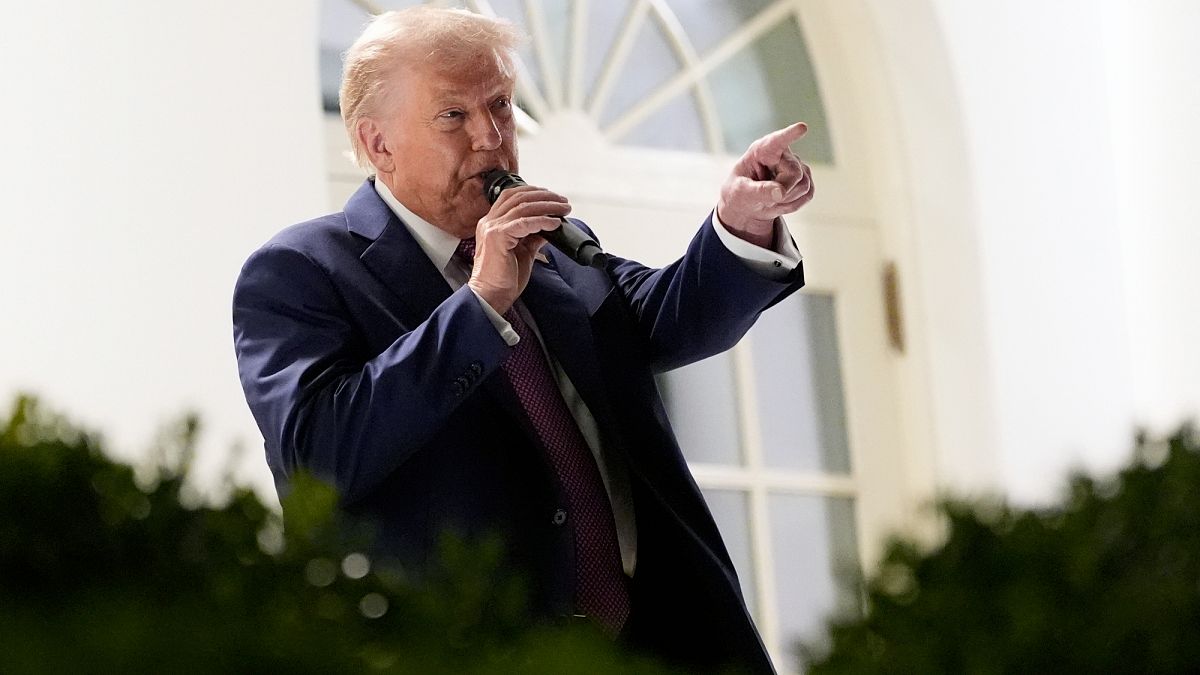

In recent developments across the globe, significant economic and political shifts are unfolding, capturing the attention of policymakers and the public alike. These changes, while multifaceted, are interconnected in ways that could shape the future trajectory of international relations and economic strategies.
Recent news has emerged from the European Union, where a substantial antitrust fine was levied against Google, amounting to €2.95 billion. Former U.S. President Donald Trump voiced robust opposition to this move, deeming it “unfair” and “discriminatory” towards American companies. He communicated his views via a post on Truth Social and announced plans to engage in discussions with the European Union in response. The imposition of the fine has stirred tensions, with Trump hinting at potential retaliatory tariffs, reflecting a broader narrative of disputes regarding the balance of trade and regulation between the U.S. and European tech sectors.
Simultaneously, in the financial domain, Wall Street faced a setback despite reaching record highs. This downturn was precipitated by a U.S. jobs report that failed to meet expectations. The report’s repercussions are significant as they have spurred speculation about possible adjustments in monetary policy. Analysts anticipate that the Federal Reserve might consider lowering key interest rates at its upcoming meeting, a move that resonates with broader efforts to bolster economic resilience in the face of fluctuating employment metrics.
In another development within the banking sector, Spain’s Banco Bilbao Vizcaya Argentaria (BBVA) has secured approval to acquire Banco Sabadell, marking the genesis of a Spanish “megabank.” Despite previous unsolicited interest and resistance from Banco Sabadell, the merger is set to create a formidable entity in the banking landscape. This consolidation highlights a trend of strategic acquisitions aimed at enhancing competitiveness and financial stability in a challenging economic environment.
North of the U.S. border, Canada is preparing for economic adjustments of its own. Mark Carney, former central banker and now a key political figure, has signaled a shift towards austerity measures. Amidst efforts to balance hefty defense spending and manage a simmering trade conflict with the United States, Prime Minister Justin Trudeau’s administration is poised to make “tough choices” regarding government expenditure. These measures are anticipated to impact federal bureaucracy as Ottawa seeks fiscal prudence against a backdrop of global economic uncertainties.
As these events unfold, the interconnectedness of political strategies and economic policies becomes increasingly evident. Countries are grappling with domestic challenges while navigating complex international dynamics. The interplay between regulatory actions, economic indicators, and strategic mergers underscores a period of transformation within various sectors. Stakeholders across the globe will be observing how these developments influence future economic strategies and international relations.
Amidst these changes, a consistent thread runs through: the necessity for thoughtful engagement and adaptive strategies. As economies pivot and adapt, the emphasis on maintaining stability while fostering growth remains paramount. Observers and policymakers are reminded of the importance of balancing domestic priorities with international cooperation, fostering a landscape where collaborative solutions might pave the way for sustainable progress.
Source: {link}
